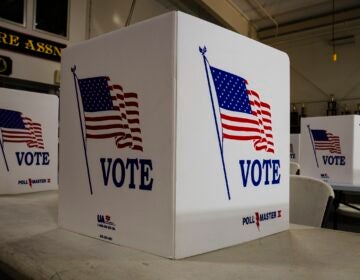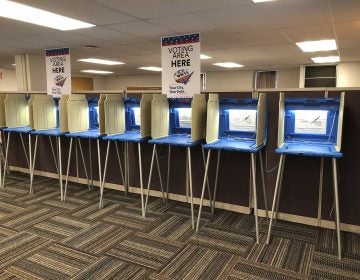Pa. is spending millions on election security, but the effort has its critics
"We are not fighting this battle alone.”
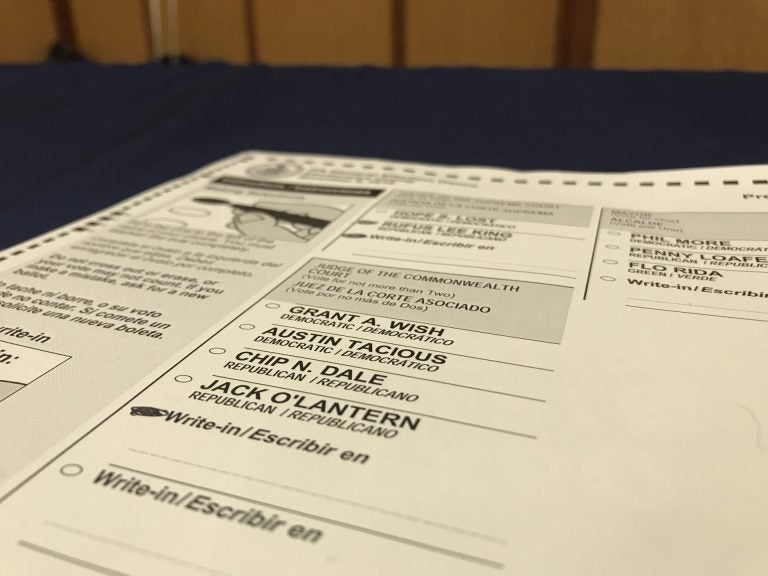
A sample ballot provided by a voting machine company hoping to win contracts with Pennsylvania counties. (PennLive)
This story originally appeared on PA Post.
—
The release of special counsel Robert Mueller’s redacted report on Russian meddling in the 2016 presidential election brings the issue of election security back into the spotlight.
Protecting the integrity of elections is of particular concern to Pennsylvania after escaping an unsuccessful hacking attempt of the statewide voter registration database by Russian operatives in 2016.
With the next presidential election now just a year away, county and state election officials are scrambling to make sure they have done everything they possibly can to avoid foreign actors creating chaos when voters go to the polls to elect the nation’s chief executive.
Under an order by Gov. Tom Wolf, Pennsylvania is moving to voting machines that leave a paper trail that can be audited. Other efforts include securing the voter registration data. Election officials maintain they are ferreting out potential vulnerabilities that could cast doubt on the integrity of election results and making changes to address them before next year’s primary.
That’s why Acting Secretary of the Commonwealth Kathy Boockvar says with certainty, “Pennsylvania voters can be completely confident that when they vote in the presidential primary their vote will be counted accurately.”
With those efforts, though, come some resistance from county officials along with concerns, particularly about the cost of new voting systems. Replacing those machines alone is expected to cost between $93 million and $150 million, depending on which system the counties choose, according to Boockvar’s department.
But it’s an investment that state election officials see as necessary after learning in 2017 from the U.S. Department of Homeland Security that Pennsylvania was one of 21 states that had its election computer systems scanned by Russian actors for vulnerabilities, though not actually hacked.
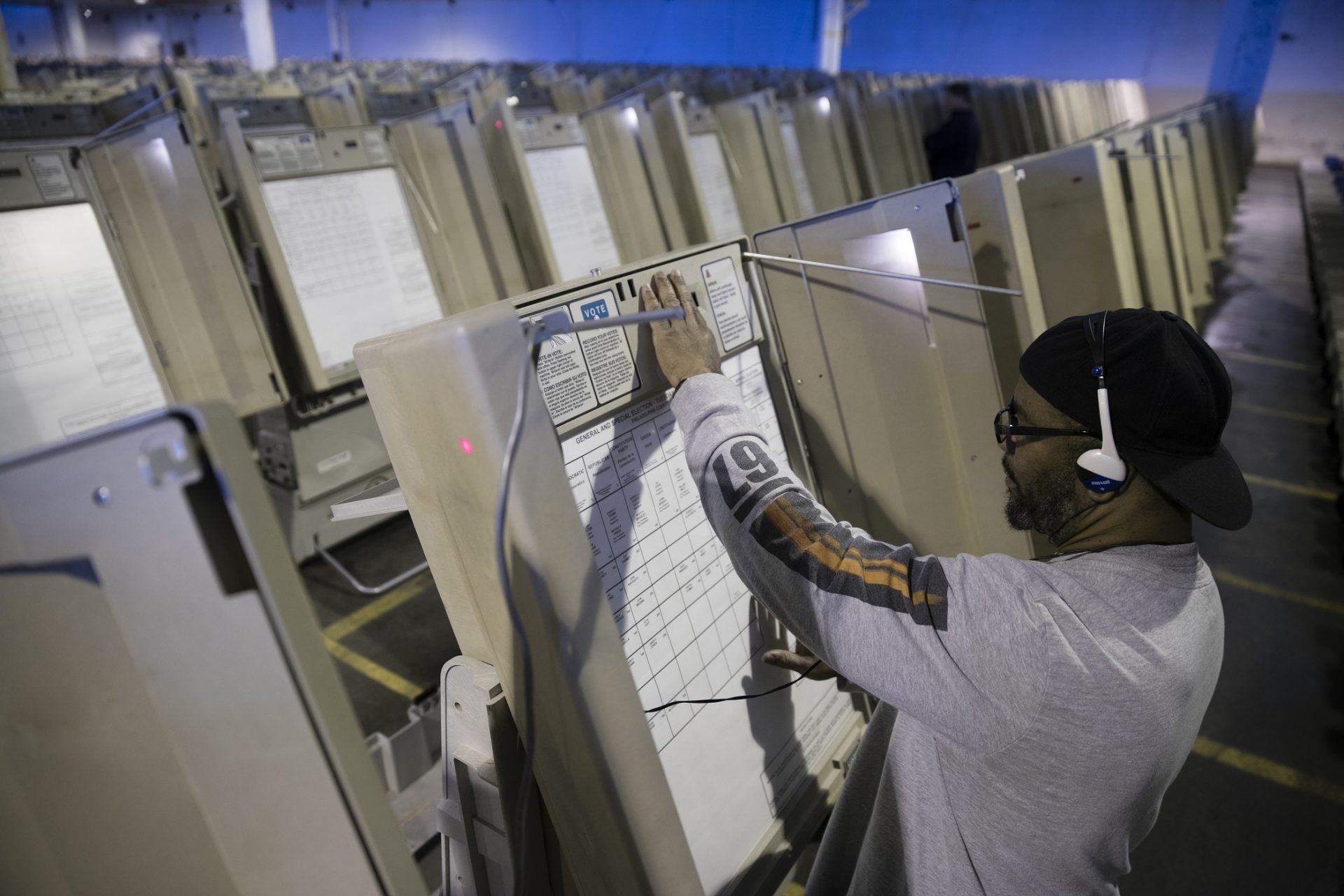
Constant vigilance
“The Department of State has worked diligently over the past two years to increase election security in Pennsylvania and keep pace with the latest advances in cybersecurity.” Boockvar said.
Fortunately, though, she said, “We are not fighting this battle alone.”
The department has formed partnerships with a broad coalition of county, state, and federal agencies, including homeland security, the Center for Internet Security, the National Guard, the Pennsylvania Emergency Management Agency, and others to maintain and enhance security, she said.
“We have made a priority of building the relationships and the technical infrastructure necessary to achieve this level of vigilance, because we know that ensuring the highest possible level of protection will be a key element of election preparation and administration from now on,” Boockvar said.
Pennsylvania was the first state to take up homeland security on its offer to perform a vulnerability assessment of its cybersecurity posture, said Wanda Murren, a Department of State spokeswoman.
The state department has implemented a host of election security measures, including a layered set of protections to secure the voter registration databases and employing encryption technology and other tools to protect systems. There is also continuous monitoring and information-sharing among election, intelligence, and homeland security officials across the country about potential threats.
The department also is encouraging voters to check their registration status much like they check their bank account or credit report to help detect any problems that could impact their ability to vote. That can be done online at votespa.com by clicking on the “check your registration status” and entering your driver’s license number or name as it appears on your registration card. A toll-free hotline is also available to check registration status at 877-VOTES-PA (877-868-3772).
Last April, Wolf issued an order that all 67 counties had to replace their nearly 25,000 voting machines with state-certified voting systems that incorporate a voter-verified paper ballot by the 2020 presidential primary.
These systems allow voters to review their paper ballot to make sure their votes are recorded accurately before it is cast. Those paper ballots then can be used to perform post-election audits to confirm the accuracy of results.
“The combination of these factors – verifiability and audit-ability – means every voter can feel confident that their vote will be counted accurately,” Boockvar said.
Cementing the governor’s voting machine replacement order are the terms of a settlement announced in December of a little-noticed federal vote-counting lawsuit filed against the state by 2016 Green Party presidential candidate Jill Stein agreeing to put voter-verified paper ballot voting systems in place by the end of 2019.
Pennsylvania is one of only 12 states – and the only swing state – where voters in a majority of counties use direct recording voting machines that store votes electronically without a paper backup. All of those states, however, like Pennsylvania, are in the process of replacing them or plan to replace them by 2020, Murren said.
Replacing voting machines
Wolf is asking the General Assembly to help counties pay for the cost of the new machines. He included $15 million in his 2019-20 budget proposal and proposes the state provide similar amounts each year through 2024. The federal government has already provided more than $14.1 million to Pennsylvania to modernize its voting systems.
But that still leaves counties having to pony up a hefty portion of the cost that some commissioners have said is likely to result in property tax increases.
At last check, 26 counties have taken official action to buy or lease or taken a vote to approve funding for one those new voting systems.
They are: Adams, Beaver, Berks, Blair, Bradford, Butler, Centre, Chester, Clearfield, Clinton, Crawford, Greene, Indiana, Lawrence, Lebanon, Lehigh, Mercer, Montgomery, Northampton, Philadelphia, Pike, Potter, Susquehanna, Venango, Westmoreland, York.
Susquehanna County in the state’s northeast corner already began using its new system in last November’s election. At this point, Murren said eight additional counties plan to implement their new systems for the May primary: Bradford, Centre, Crawford, Greene, Indiana, Lawrence, Montgomery, Pike.
Some 32 counties will have their new systems in use in November and 11 more by next April’s presidential primary.
Still, a year after Wolf’s directive was issued and only a year left to meet the governor’s deadline, the state department has yet to receive word on what the remaining 15 counties plan to do.
Some of those counties have resisted moving ahead with buying new machines, saying their current voting machines are not hooked up to the internet so they can’t be hacked.
County officials also have argued they can’t afford the machines or have other priorities that need to be addressed first. Others are confused as to why their machines that use paper ballots don’t suffice.
Department officials have said the old machines do not meet the current standards. They expect to decertify all of the old voting machines prior to the next presidential primary.
But State Sen. John Gordner, R-Columbia County, who represents some of the counties that are being defiant about the governor’s order, however, has legislation that seeks to put a halt to that mass machine decertification plan.
Some commissioners in counties he represents see no reason to be forced to buy new machines. What’s more, the cost of replacing them is “leading to a great deal of angst,” Gordner stated in a memo to his Senate colleagues seeking support for his bill.
Gordner’s bill seeks to put a hold on the decertification of machines until the governor and General Assembly can agree on a way to pay for them. The bill contains language to prevent a repeat of this situation by requiring ample notice of a statewide election equipment replacement and approval from the General Assembly.
The Senate State Government Committee voted 6-4 to approve the bill earlier this month. Committee Chairman Mike Folmer, R-Lebanon County, supported the measure not because he opposes replacing the voting machines but he doesn’t like the way the Wolf Administration is carrying it out.
He believes it needs to be done in a well thought-out fashion and with an agreed-upon plan that has General Assembly buy-in for how to pay for the new machines.
Folmer also worries about implementing the new voting systems in what is anticipated to be a highly contentious election year could spell trouble, leaving energized voters standing in longer lines waiting to cast their ballot.
“I want everybody’s vote to count. There’s no debate about that,” Folmer said. “It’s just a question of timing and lack of planning and there just was no plan. They can say they had a plan all day but there really wasn’t.”
If the bill makes it to the governor’s desk, it may well bring out Wolf’s veto pen.
“We know foreign entities have sought to disrupt elections and we oppose delaying securing our elections,” said J.J. Abbott, a spokesman for Wolf. “There is virtually unanimous agreement among security experts, including in the Trump administration, that states should not delay improving voting security with machines that produce paper backup.”
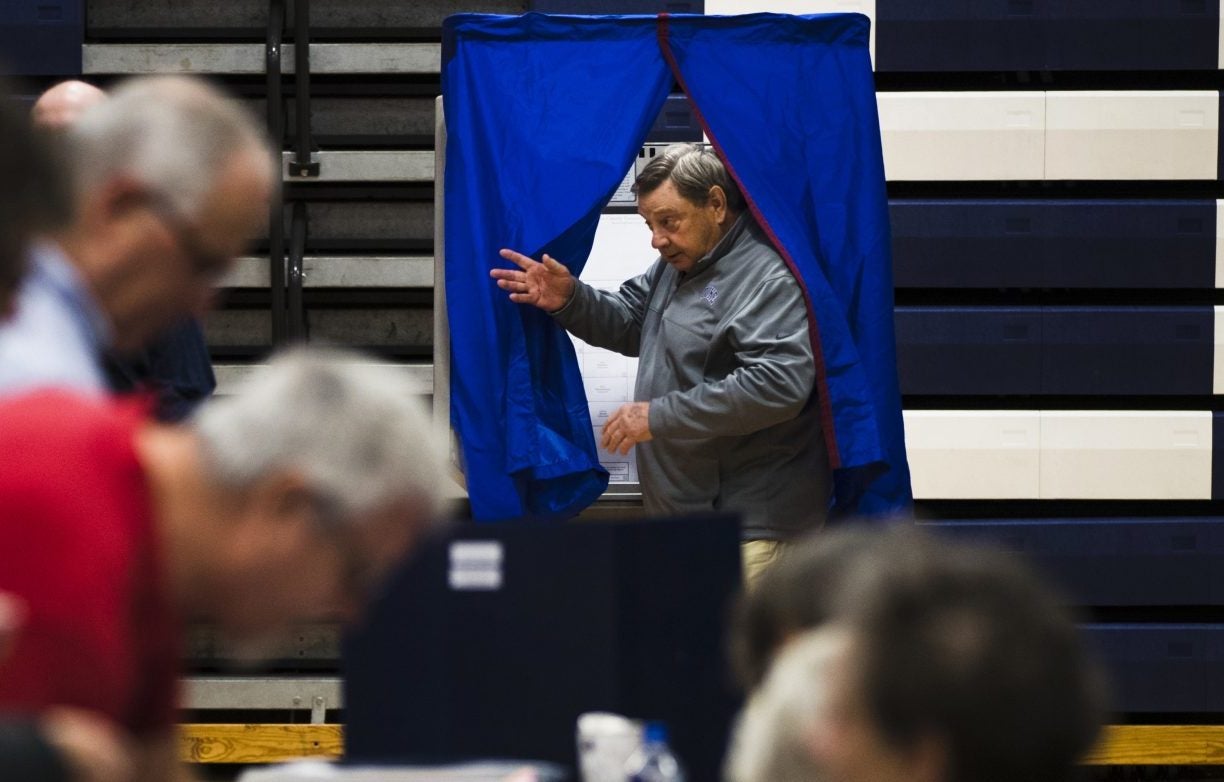
Other reforms being sought
While that debate rages on, outsiders are calling for other changes to the electoral process that they see as just as critical as dealing with and improving cybersecurity and other security-related issues.
The Committee of Seventy, a Philadelphia-based government reform group, for one, said recruiting and training poll workers, which has become a significant challenges in places across the commonwealth, is another of its concerns, said committee spokesperson Pat Christmas.
Micah Sims, executive director of Common Cause Pennsylvania, also wants to see the state make strides that likely would increase voter participation.
These include ideas such as allowing people to register and vote on Election Day and pre-registration of 16- and 17-year-olds. It also would like to see Pennsylvania join the 39 states and District of Columbia that allow any qualified voter to cast a ballot in person during a designated time period prior to Election Day, with no excuse or justification required.
“I think now that we’re in a more ‘secure’ – if people thought we were unsecure although I don’t ever think we were – place that these type of reforms to make sure voting accessibility is there can only enhance and improve our elections and our election turnout,” Sims said.
PA Post is a digital-first, citizen-focused news organization that connects Pennsylvanians with accountability and deep-dive reporting.
WHYY is your source for fact-based, in-depth journalism and information. As a nonprofit organization, we rely on financial support from readers like you. Please give today.



